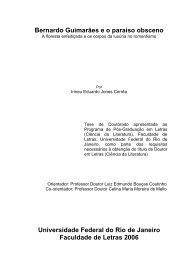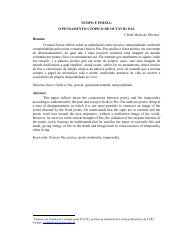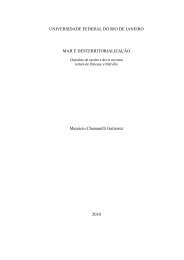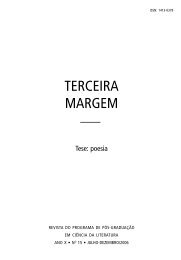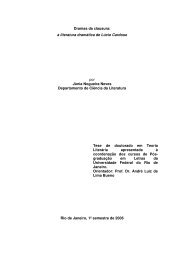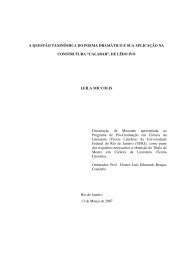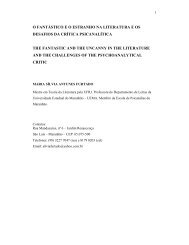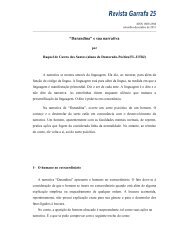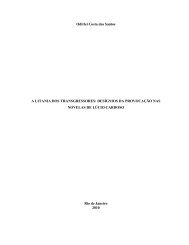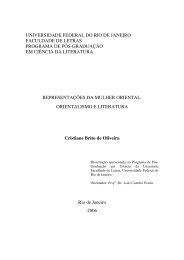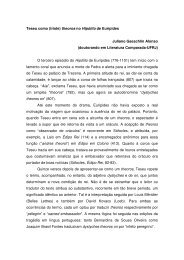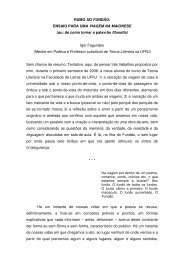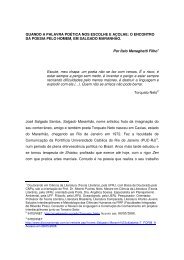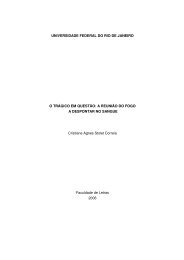Valéria Mac Knight - programa de pós-graduação em ciência da ...
Valéria Mac Knight - programa de pós-graduação em ciência da ...
Valéria Mac Knight - programa de pós-graduação em ciência da ...
Create successful ePaper yourself
Turn your PDF publications into a flip-book with our unique Google optimized e-Paper software.
ABSTRACT<br />
Some thinking on mo<strong>de</strong>rn and cont<strong>em</strong>poraneous poetry is unfol<strong>de</strong>d having as its main<br />
theoretical foun<strong>da</strong>tion some i<strong>de</strong>as <strong>de</strong>veloped by Michel Collot. The fun<strong>da</strong>ments of liric art<br />
and its transformations are <strong>de</strong>veloped as well as its main th<strong>em</strong>e – non subjective lyrical poetry<br />
– which led us to find in Nietzsche a starting point, due to the fact that this philosopher finds<br />
in art, a solution for the lack of enchantment associated with human existence. We focus on<br />
the lyric poetry transformations throughout the centuries: from an anachronic point of view of<br />
this process, we have searched, and were able to verify, that lyrical poetry was not always<br />
subjective, what confirms Collot’s proposition in his text Le sujet lyrique hors-<strong>de</strong>-soi, where<br />
he states that lyrism is not in the subjective, and that maybe this subjective period was the<br />
exception and not the rule. The change from the subjective concept of lyrism to an objective<br />
one is approached within some insistence, aiming at presenting the i<strong>de</strong>a enchainment which<br />
leads to the un<strong>de</strong>rstanding that the poet, out of himself, may report himself to the world as<br />
another, in language. Not one author was chosen but several, and the criteria for this choice<br />
was to intertwine poetical theory and practice from those who were able to subvert reality and<br />
introduce some enchantment in <strong>da</strong>ily life, making new horizons possible in their writings. The<br />
th<strong>em</strong>e Horizon is <strong>de</strong>veloped according to Husserl’s point of view and his concept of Horizon<br />
Structure. By analogy, the horizon of writing is the paradox of the representation of the real<br />
by language, a fiction pattern shared by several subjects anachronically, writing crosses<br />
centuries and breaks with distances, making worlds closer, pushing away, but also coming<br />
closer to ourselves; the human being may at last, unfold his/her reflection on existence and<br />
his/her report to the world, confirming that literature is life.<br />
21



